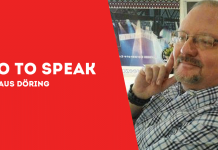
NEIL HONEYMAN
LAST weekend’s PN featured Gihun Ng Yoo who recently won a silver medal at the World Mathematics Invitational (WMI) Final Round 2023 at Yonsei University in Seoul, Korea.
The article featured the background to his success. In particular, it identified the importance of the role of his math teachers who reviewed and prepared him for the competition.
Success in math depends very much on reinforcement. Specifically, endless repetition of math exercises is necessary in order to achieve worthwhile results.
***
Yesterday saw the launching of learning camps by the Department of Education (DepEd). These are aimed at “deepening students’ knowledge, expanding their skills and fostering a more comprehensive understanding of academic subjects.’
The camps are designed to provide further practice on, and applications of, previously taught competencies. They recognize that many students have not reached an especially high standard because they did not grasp fully the topics taught during the normal school year.
The learning camps could well be an important catalyst to help students reach a good standard at the second and, possibly subsequent attempts.
DepEd has indicated that classes at the camps will have a maximum size of 35 students. This could result in improved results. Many classes during the school year contain 50 or more students. These classes cannot be conducive to efficient learning.
For two days a week, teachers will take part in activities that focus on planning and reviewing teaching, sharing effective teaching approaches and strategies, preparing teaching materials and discussing other teaching-related concerns.
“The goal is to enhance the teaching and learning process and promote continuous professional development among educators.”
Sounds good. I hope it works well in practice. Then the camps will have been worthwhile.
DepEd also seeks to enhance “job-embedded” learning opportunities for teachers.
DepEd says that “job-embedded learning promotes reflective practice, collaboration with colleagues and the exploration of innovative teaching approaches.”
As might be expected, the Management Association of the Philippines (MAP) is adopting a more cautionary tone. It wants the country to ease the current education crisis by emphasizing the need for the education system to be able to better adapt to a changed workplace in a technologically-driven world. MAP is seeking a public-private partnership in education so that graduates are better prepared for gainful employment.
It is important, therefore, for DepEd to engage with other entities, such as MAP, so that the education process is compatible with, and not adversarial to, the world of work.
This dialogue, which is currently insufficient, should be developed so that the education process can be adjusted be respected by all./PN







